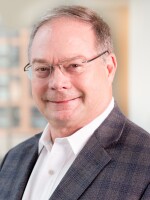It could be Saturday night in San Juan. A Puerto Rican band, Son de Toa, is on stage playing while couples are out on the dance floor.
To eat, there's pollo frito and tostones (fried chicken and fried green plantains).
But this is not Puerto Rico. It's Orlando, Fla.
Long an important voting bloc in New York, Puerto Ricans are now coming into their own in Florida. They helped Barack Obama carry the state in November and are poised to become an important swing vote in the nation's largest swing state. The nomination of Sonia Sotomayor to the Supreme Court has cast a spotlight on their growing political clout.
The Asociacion Borinquena de la Florida Central, Florida's oldest ethnic club, is the host of this night's event. Its president, Luis Suarez, says the club is 400 families strong and growing. "We still love Puerto Rico; it's in our heart," says Suarez. "There's something that's Puerto Rican that's in us. And when we come here, we like to relax as if we're in Puerto Rico."
A Burgeoning Population, Underrepresented
According to the latest census figures, nearly 750,000 Puerto Ricans now live in Florida — and the largest concentration is in Orlando, where Puerto Ricans have become the fastest-growing population.
The Puerto Rican presence in central Florida goes back decades to World War II, when some military bases first drew Puerto Rican servicemen and workers to the area.
Emilio Perez, with the Puerto Rican Chamber of Commerce of Central Florida, says that over the past decade, those numbers increased dramatically.
"There was a time," says Perez, "back in 2006, when we had an average of 1,000 people moving on a weekly basis from the island to the Central Florida region."
One factor was the economy: The recession hit Puerto Rico earlier than the mainland. Lawyers, businessmen and health care professionals came here looking for opportunities.
But for many years, while Puerto Ricans' numbers grew, their political influence didn't. There are still just a few county commissioners and just one state representative who are Puerto Rican.
One reason is that, until recently, most Puerto Ricans either didn't vote, or they cast their ballots back on their home island.
"The island is like having that picture of your mom," says Marytza Sanz, the president and CEO of Latino Leadership, a group that does voter education and outreach. "When your mom is gone, you're always going to love and remember her. That's my island for me."
In the last election, Latino Leadership ran ads and registration drives in an effort to get Puerto Ricans to the polls in Florida. The message, says Sanz, was "it's OK that you love Puerto Rico." But if Puerto Ricans decide to live on the mainland, Sanz says, "you have to then have a commitment for the place that you choose to live. And that is voting locally."
That message got through in the last election. As a candidate, Obama courted Puerto Ricans and Central Florida, visiting the area twice during the campaign.
Aubrey Jewett, associate professor of political science at the University of Central Florida, says that as a result, Puerto Ricans registered to vote and turned out in record numbers for Obama, helping him carry the Hispanic vote and win Florida.
A 'Big Political Force' In The Making
Jewett says that could have future significance for Florida and for both political parties.
"If Central Florida, the I-4 corridor, is the swing region of the state," Jewett says, "then that Puerto Rican community seems to be the swing group in the swing region of the state. And if that community continues to register, he says, "they will become a big political force."
Some expect that political force to continue to grow. In Puerto Rico, the commonwealth's governor, Luis Fortuno, has announced he's cutting 30,000 public sector jobs. He's already carried out the first wave of layoffs, firing some 8,000 workers.
Included in each worker's severance package is $2,500 to pay for relocation costs. Perez of the Puerto Rican Chamber of Commerce of Central Florida says the region is bracing for a new wave of migration from the island.
"It's going to be a domino effect," says Perez, "because if these people move here and they find jobs, then the other ones are going to move here, too. So you're going to have huge, huge changes coming to Orlando soon."
Some of those changes will be measured next year by the census. Many here expect that when the count is done, Florida will move past New York as the country's third most populous state — and one factor is the explosive growth in the Puerto Rican community.
The state could pick up two new congressional seats. Some analysts say that, under the Voting Rights Act, one of those new seats may have to be drawn to represent Central Florida's Puerto Ricans.
Copyright 2022 NPR. To see more, visit https://www.npr.org. 9(MDAzMjM2NDYzMDEyMzc1Njk5NjAxNzY3OQ001))






